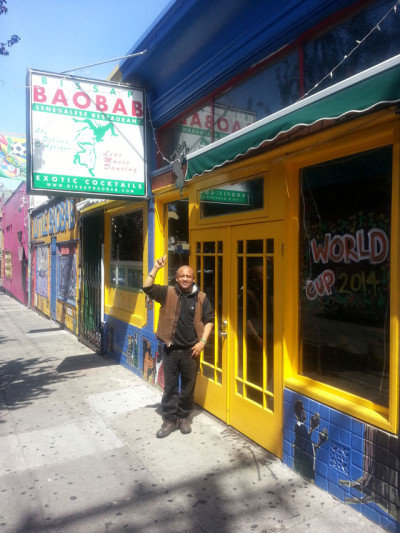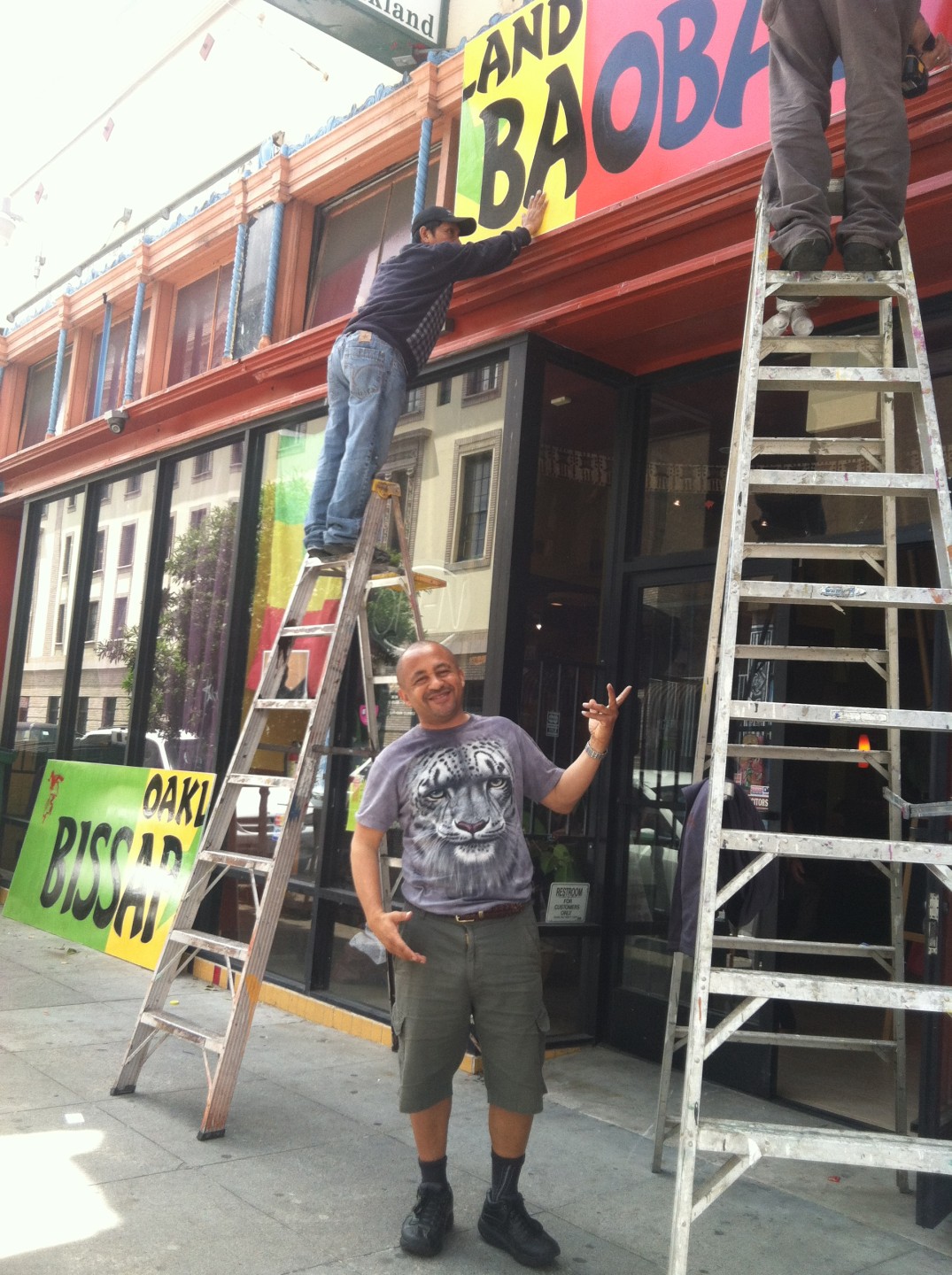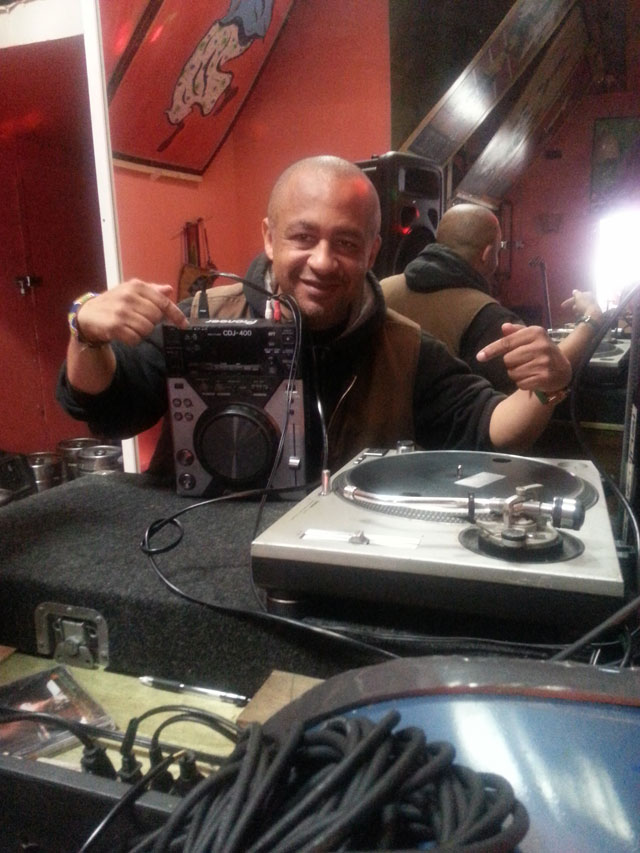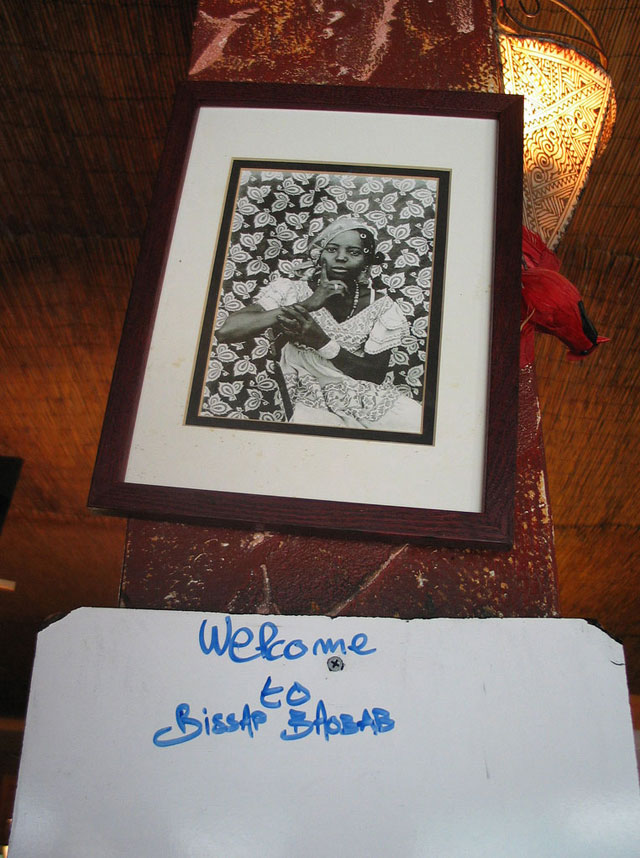
In 1997, the Mission District was still a neighborhood in deep transition. The hipsters weren’t yet there in droves. Neither were the foodies. And the intersection of 19th and Mission, close to Capp Street? Foot traffic there was often related to illegal activity. It was in that environment that Marco Senghor took a chance and opened a restaurant that served food from his native Senegal and featured music from across West Africa. Bissap Baobab, named after a majestic tree common to Senegal, was an immediate hit, and for almost two decades, it has thrived in one incarnation or another near that same intersection of 19th and Mission streets.
The Mission has changed, and Senghor is facing challenges that threaten to undermine what he has built up in San Francisco. For one thing, there’s the Mission’s gentrification and the thirst to build condos and other higher-end housing there. New owners recently bought the property that Bissap Baobab sits on, and the landlord has told Senghor that his lease won’t be renewed after its current term expires in 2019. Then there are the discount-dining websites that have staked out San Francisco’s eateries and promise to introduce first-time customers. These customers may not be loyal to repeat dining, so Senghor and other establishments have to navigate a proverbial million-dollar question: How do you cater to these customers without losing money?
Here’s how: You stick to your original vision of an unpretentious spot with a friendly environment, delicious eats, inspired drinks (this is key!), and music that moves people one way or another. Then you bring in new customers on your own initiative by offering new tie-ins, as in viewings of the summer World Cup soccer games. And then, as insurance, you open a second Bissap Baobab – this one in Oakland, where many ex-San Franciscans now live and where many loyal customers had urged you to expand.

Senghor opened his Oakland Baobab eight weeks ago, on May 1, at a downtown location on 15th Street near Broadway, and its debut was vintage Senghor: Musicians played at the tables, people danced, and diners helped themselves to a lunch menu that featured yassa (a marinated Senegalese chicken dish), aloko (fried plantain), and thiakry (a Senegalese yoghurt). Creating a festive atmosphere that puts people at ease – that’s the Senghor way. And that’s Senghor himself, who is also a DJ and plays music at Baobab and other venues.
“It’s a way of branching out and having two locations,” Senghor tells me. “A lot of people have moved to Oakland after what’s happening in San Francisco with the economic pressure and people not being able to pay the rent. And friends who had moved to the East Bay all asked me, ‘Why don’t you come over here?’ Even though I’m still trying to put all my heart in San Francisco and keep what I’m doing, I decided to open now in Oakland because I know Oakland is changing and the prices are getting higher. Hopefully, I’ll be able to maintain both branches at one time.”



